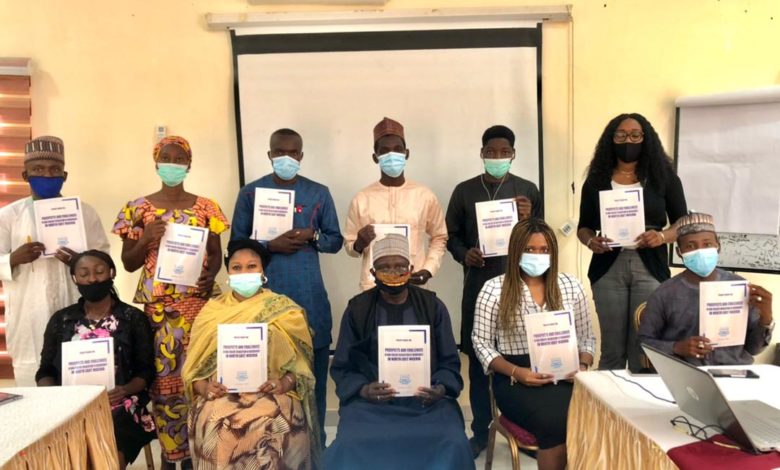North East: CITAD Identifies Key Actors To Non-Violent Resolution Of Insurgency

The Centre for Information Technology and Development (CITAD) has stressed the need to include traditional and religious leaders in any reconciliation process that would lead to long-lasting peace in the Nigerian Northeast region.
This was part of the findings of a recent survey conducted by the non-profit in four states – Borno, Adamawa, Yobe and Kano to see if there were lessons to learn from the way conflict was addressed in the states.
During a presentation of a policy brief on the prospects and challenges of non-violent resolution of insurgency in the North East, the organisation said the survey respondents said they believe involving stakeholders that include community leaders, military, government, elders, youth and women leaders can help in promoting dialogue and reconciliation in the North East.
“A broad consensus in the findings indicate traditional and religious bodies play a central role in dialogue because of their historical roles in conflict resolution as more trustworthy and acceptable stakeholders,” CITAD stated.
According to the findings, youth and other non-state actors such as the Civilian Joint Task Force (CJTF) should be involved in the dialogue and reconciliation processes with the insurgents.
Hamza Ibrahim, an officer with CITAD, said among the concerns of the victims is that dialogue and reconciliation efforts favour the perpetrators, not the victims. However, he mentioned that peace can only prevail if repentants can be accommodated.
He noted that some of the perpetrators were forced to take arms by the Boko Haram terrorist group in order to avoid being killed by the terrorists if they refuse.
“This category should be looked at as victims in another form,” Ibrahim said.
The presentation, held in Abuja on Tuesday, was attended by experts, stakeholders and conflict reporters who discussed extensively on the challenges of reconciliation efforts as an option for resolution in the troubled region.
According to the CITAD, the insurgency in the North East had resulted in the death of 37,530 people, created over 244,000 refugees and internally displaced more than two million people.
It noted that the research findings have shown that the insurgency was far from being defeated.
Despite some successes recorded by the military, Boko Haram terrorists continue to attack soft targets making the end of the insurgency a mere possibility but not a reality.
The non-profit disclosed that it found out that many insurgents flushed out of their locations have now embedded with local communities making it possible for them to spring a surprising attack.
“Although territorially the insurgents are pushed to small rural areas, nevertheless, some of them are still embedded within communities and working within the formations to coordinate actions,” CITAD found out.
“Those embedded within the communities are responsible for generating information and intelligence gathering, identification of soft targets, handling logistics such as food supply, movement of ammunition, and other supplies that the insurgents need.”
Support Our Journalism
There are millions of ordinary people affected by conflict in Africa whose stories are missing in the mainstream media. HumAngle is determined to tell those challenging and under-reported stories, hoping that the people impacted by these conflicts will find the safety and security they deserve.
To ensure that we continue to provide public service coverage, we have a small favour to ask you. We want you to be part of our journalistic endeavour by contributing a token to us.
Your donation will further promote a robust, free, and independent media.
Donate HereStay Closer To The Stories That Matter




